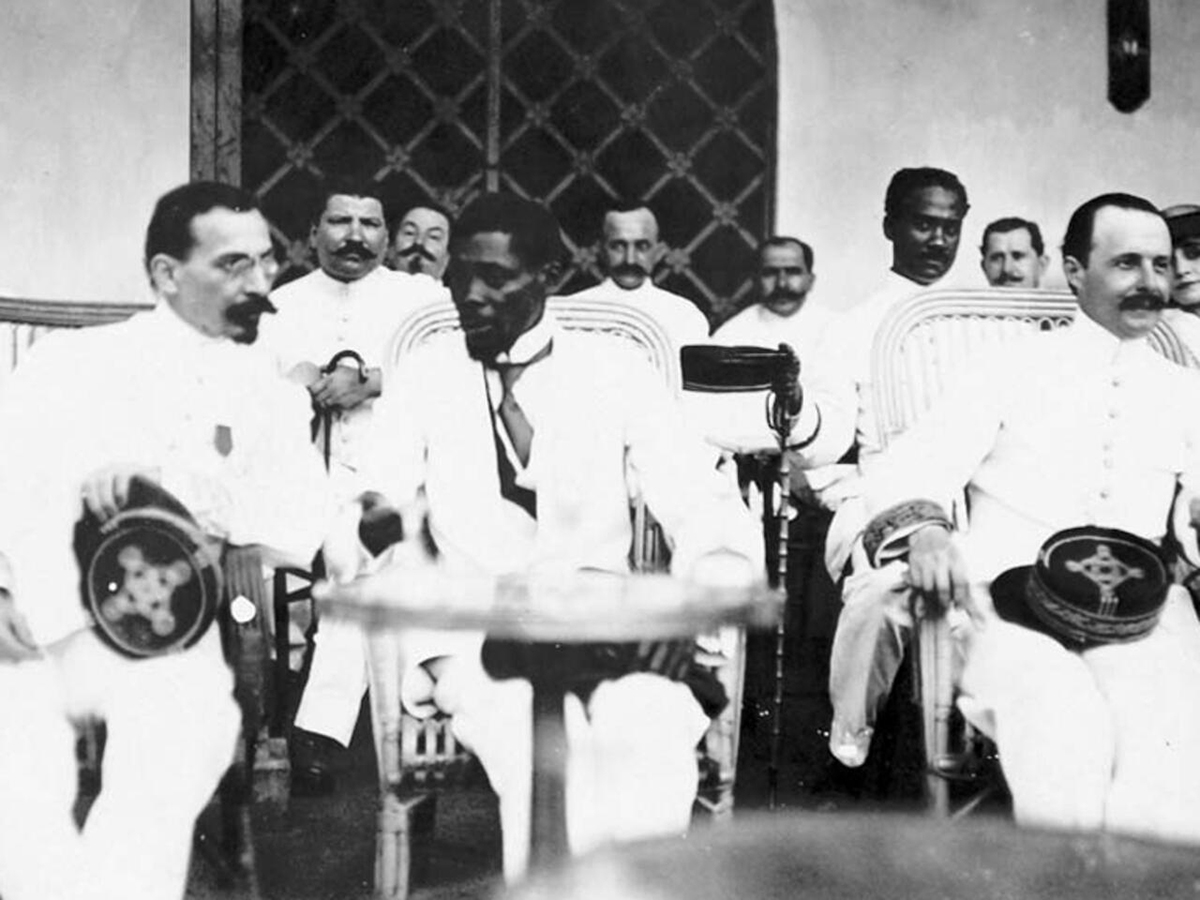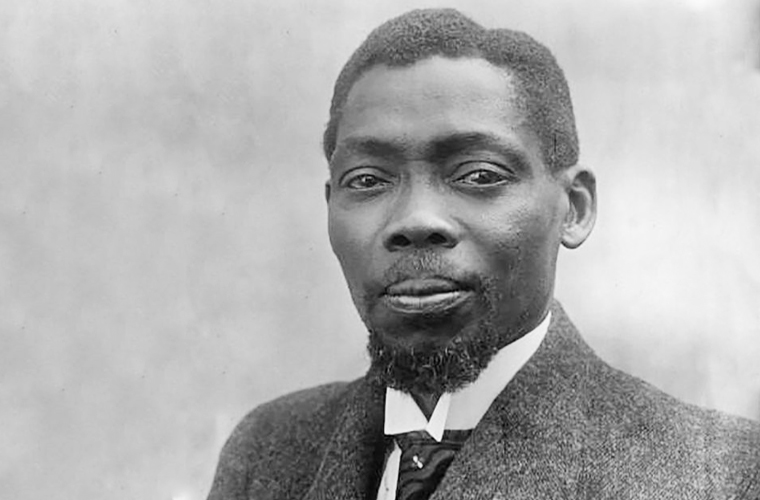Blaise Diagne was born on the small island of Gorée off the coast of Dakar into a well-to-do Senegalese middle-class family. His family had the political rights of French citizens and were among the Africans who could elect a deputy to the French National Assembly.
In 1914 Diagne was elected to the National Assembly in Paris, defeating six European candidates. On Sept. 29, 1916, he achieved the enactment of a law that bears his name and which reaffirmed the rights of Franco-African citizens at a time when there was a movement in France for their curtailment. In 1917 Diagne was appointed commissioner of the republic and placed in charge of conscription in West Africa. In this post, he helped recruit over 180,000 men to fight for France in World War I.
Reelected deputy by large majorities in 1920 and 1924, Diagne also served as president of the 1919 International Pan-African Congress and cooperated with prominent Americans like W. E. B. Du Bois and Marcus Garvey.

In his first election manifesto, Diagne told his followers that “your adversaries tremble at the idea of your political and social awakening.” However, he sought alliances with the various traditional elites and sought to reach the “masses” only indirectly. Diagne also bettered the status of Senegalese troops, giving them a sense of self-importance that persisted in independent Senegal’s army.
Yet, as time passed, Diagne increasingly not only explicitly cast aside independence and even self-government as legitimate goals but defended every major aspect of the colonial system, including forced labor. By completely assimilating the cultural and political values of France and by acquiring positions of wealth and eminence, Diagne considered himself to be the personification and justification of French colonialism. He went on to become the first African to hold a high ministerial position in the French government. From June 26, 1931, until Feb. 19, 1932, he was undersecretary of state for the colonies.

While Diagne’s first successes marked an important stage in the political evolution of Francophone Africa, new leaders, especially Léopold Senghor, soon rejected the legitimacy of French cultural hegemony.

